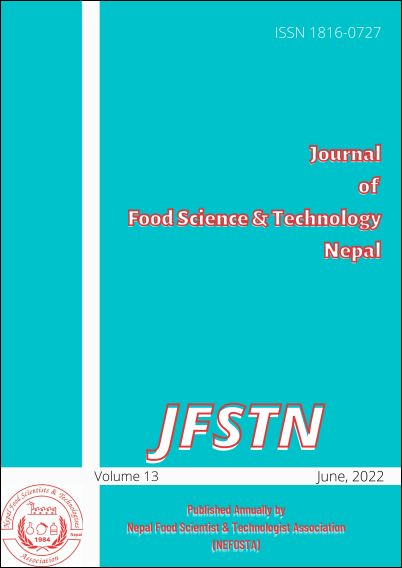Assessment on the Quality of Groundwater Sources- A case of Godavari Municipality, lalitpur
DOI:
https://doi.org/10.3126/jfstn.v13i13.68082Keywords:
Drinking water, total coliforms, Waterborne infectionsAbstract
Groundwater has played a critical role in meeting the water demands of the valley, but safe drinking water has been a great public health concern. The study was undertaken to assess the existing status of drinking water quality of Godawari Municipality ward no. 12 in the month of January and February. Most of the people in the municipality are dependent on the groundwater and on the tap water supplied by the Kathmandu Upatyaka Khanepani Limited (KUKL). Regular and independent monitoring of the existing source of water is lacking in the municipality. A total of 20 samples comprising 10 from wells and 10 from stone spouts were collected. Different physico-chemical and microbiological parameters were analyzed by following the American Public Health Association (APHA) method. From the study, it was found that the physico-chemical parameter such as temperature, pH, conductivity, total dissolved solids, total alkalinity, hardness, magnesium and chloride were within the permissible limit of Nepal’s Drinking Water Quality Standards (NDWQS) whereas iron and ammonia exceed the standard value by 5% each and 10% of water samples were found to be yellowish. Arsenic was not detected in any sample. Most problematic were total coliform and E.coli bacteria, which were presented in 80% and 40% of samples, respectively. The results of the study outline the unsuitability of groundwater for direct consumption, especially without any improved water treatment for bacteria. As, the sample were analyzed in winter season, the presence of total coliform and E.coli bacteria outline that it may outbreak different waterborne diseases especially in rainy and summer season.
Downloads
Downloads
Published
How to Cite
Issue
Section
License
The author will be the copyright holder of this open access journal - 'Journal of Food Science and Technology Nepal (JFSTN)'.

